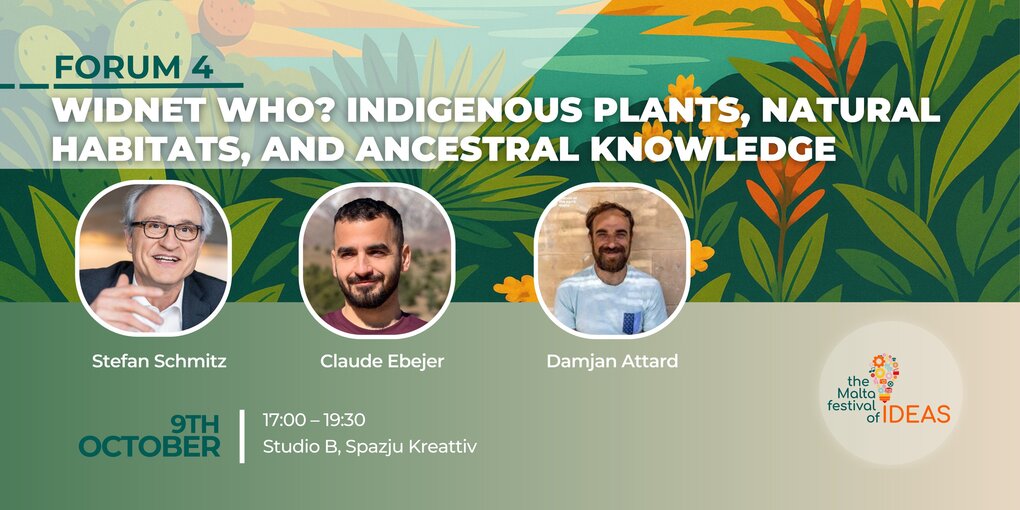
The Malta Festival of Ideas is a cultural initiative that aims to inspire society through dialogue, creativity, and education, focusing on pressing global challenges. For its inaugural 2024 edition, the theme was climate change, featuring panel discussions, workshops, and performances with both local and international experts.
This year, the Festival of Ideas 2025 envisions to be a pivotal platform promoting a multidisciplinary space for reflection, dialogue, and co-creation of innovative and creative ideas revolving around the theme of peace. Recognising the interwoven relationship between culture, dialogue, and peace, Reimagining Tomorrow: Possibilities for Peace aims to re-centre our collective efforts towards the promotion of diplomatic relations, inclusive communities, and peaceful co-existence with our environment.
The Festival of Ideas will feature five thematic forums over one week. Distinguished speakers will address diplomacy, international human rights law, artistic expression, environmental heritage, and community activism. The festival includes various events like, concerts, and exhibitions, all designed to foster community engagement and spark ideas for a sustainable future.
Crop Trust Engagement

Widnet Who? Indigenous Plants, Natural Habitats, and Ancestral Knowledge
Thursday 9 October · 17:00–19:30 · Studio B, Spazju Kreattiv
Widnet il-bahar, Cheirolophus crassifolius is potentially the most iconic plant associated with the Maltese islands. Despite its significance to the environmental and cultural heritage of the islands, this indigenous plant has been under threat for years. Over development, climate change, and a general lack of political will to protect indigenous plants from manmade threats or natural disasters continue to threaten the livelihood of indigenous plants and natural habitats. The shift towards modern day capitalist societies, including mass tourism, lab created food, and departure from natural remedies to pharmaceutical alternatives continued to threaten the centrality of these plants and knowledge for community cohesion, development and survival. Therefore, the preservation and promotion of ancestral knowledge and natural habitats remain pivotal. Work carried out at the Svalbard seed vault in Norway, and research and the propagation of plants by local NGOs are examples of best practices for the preservation of our shared resources and intangible knowledge. The Svalbard Seed Vault serves a humanitarian purpose and is part of the international system for conserving plant genetic diversity guided by the UN organisation for Food and Agriculturen (FAO).
With a clear vision projected into the future, and our fragmented relationship with sustainability and preservation of indigenous plants and ancestral knowledge, this Forum aims to provide a unique opportunity to understand the centrality of collective memory, cooperation and action in promoting balance between modern day aspirations, and the world’s most treasured asset: the environment.
Speakers
- Stefan Schmitz, Executive Director, Crop Trust
- Claude Ebejer, Co-Founder, ACT
- Damjar Attard, Campaign Coordinator, Food, Agriculture & Biodiversity, Friends of the Earth Malta
- Moderated by Petra Caruana Dingli
